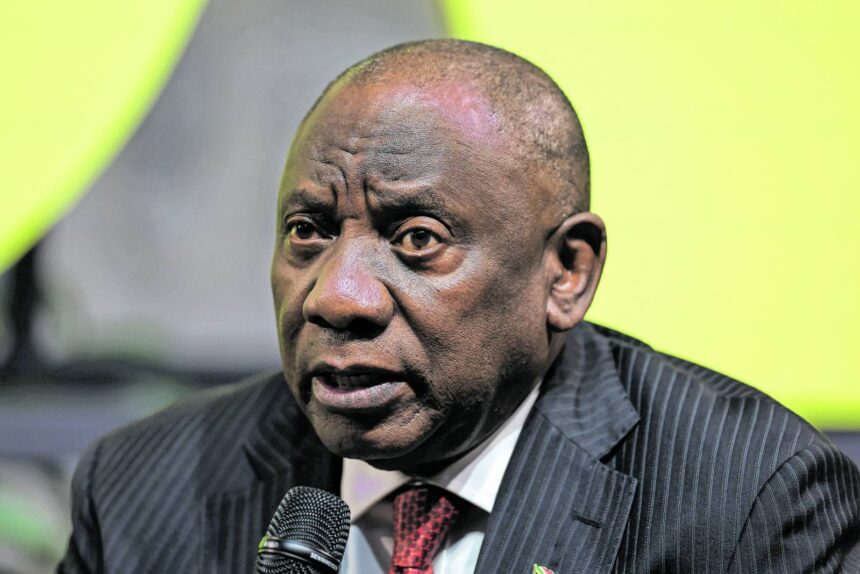President Cyril Ramaphosa has faced numerous challenges during his time in office, but perhaps none as defining as the recent split within the African National Congress (ANC). The party, once a symbol of unity and liberation, fractured along the KwaZulu-Natal fault line, with members loyal to former President Jacob Zuma throwing their support behind his uMkhonto weSizwe (MK) party.
This split left Ramaphosa with the difficult task of holding together a party that was tearing itself apart. The loss of the ANC’s electoral majority was a blow to the president, who had worked tirelessly to prevent such a rupture. However, rather than succumb to self-doubt and regret, Ramaphosa found grace and resolve in defeat.
In a move that surprised many, Ramaphosa set out to form a broad coalition that would see the political center hold. He skillfully negotiated with the Democratic Alliance (DA) to enter into government on terms that were acceptable to both parties. This coalition was not only a way to maintain stability within the government but also a strategic move to marginalize the MK party and the Economic Freedom Fighters.
Ramaphosa’s cabinet appointments reflected his careful consideration of the opposition parties, assigning them portfolios critical to their constituencies while holding his own party accountable for past failures. However, there were missteps, such as appointing Thembi Simelane as justice minister despite her being a person of interest to the National Prosecuting Authority.
The president’s handling of the Basic Education Laws Amendment Act impasse also raised questions about his leadership. While compromise was eventually reached, the delay in resolving the issue highlighted the challenges of governing with a coalition government.
Overall, President Cyril Ramaphosa’s ability to navigate the complexities of South African politics and form a coalition government in the face of internal division is a testament to his political acumen. However, the challenges that lie ahead will test his leadership and ability to steer the country towards a more stable and prosperous future. As an analyst recently pointed out, the time is now for President Ramaphosa to step up and lead with a focus on the people who are counting on him to make things work. While his track record within the ANC may be less than stellar, there is still a chance for him to make a lasting impact by steering the government of national unity in the right direction and kick-starting the economy.
With three years left in his term, President Ramaphosa is feeling the pressure to address the country’s most pressing issues. Despite the challenges within his cabinet, he is taking steps to centralize authority in the presidency and expand the Operation Vulindlela team to tackle critical issues like the water crisis. By ignoring the noise and focusing on results, he is determined to make a difference in the time he has left.
Internationally, President Ramaphosa is using South Africa’s presidency of the G20 to push for reforms in multi-lateral institutions and fairer terms for developing countries. His foreign policy stance emphasizes principled multi-lateralism and respect for international law, positioning him as a strong advocate for Africa and the Global South on the global stage.
As he navigates the changing political landscape, President Ramaphosa is also preparing to engage with the United States under a new administration. By extending an invitation to President Trump for the G20 summit, he is signaling his willingness to work with the US on key issues facing both countries.
In his second term, President Ramaphosa has shown moments of clarity and purpose that were lacking in his first term. By continuing to focus on key priorities and taking decisive action, he has the opportunity to make a real difference for South Africa in the years ahead.
Overall, the president’s commitment to effective leadership and service to the country is commendable. By staying true to his vision and working towards tangible results, President Ramaphosa can leave a lasting legacy for the people of South Africa.








